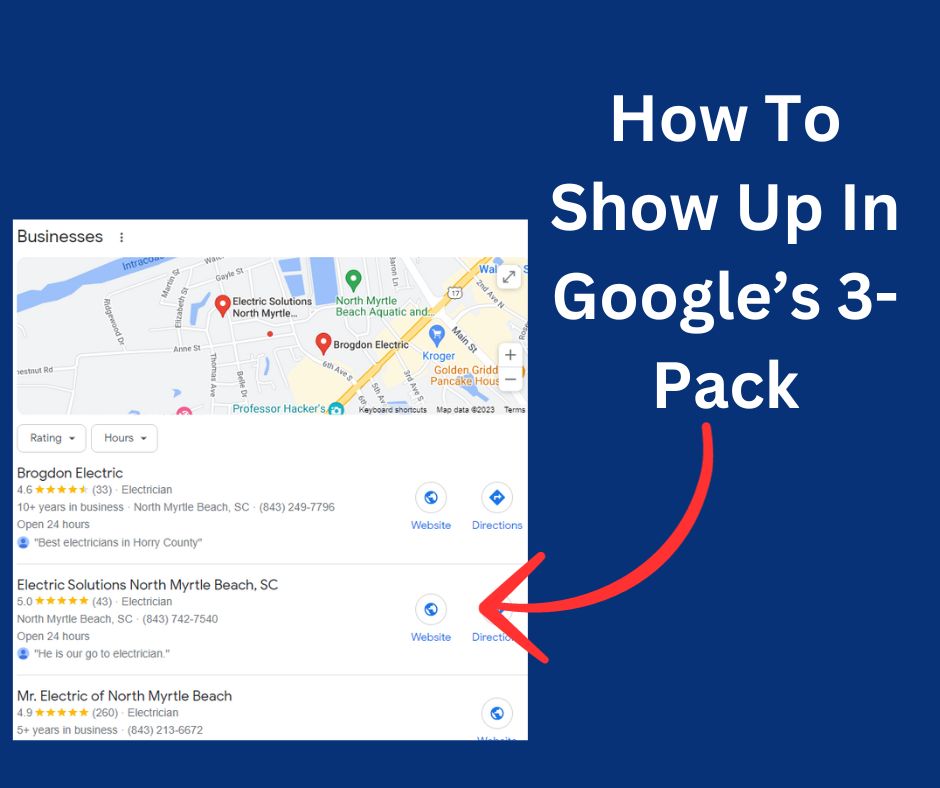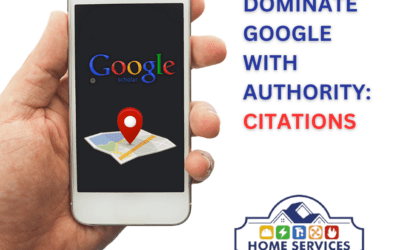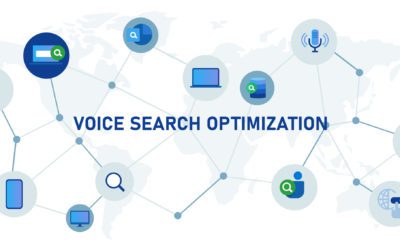The Internet is massive. Internet Live Stats displays a live count of websites on the Internet. As of this writing, there are over 1.8 billion websites. However, only 200 million of these websites are active. A website consists of 10 to 30 pages. That means your webpage is competing with somewhere between 2 and 6 billion other webpages for attention. To say the Internet is a competitive landscape is an understatement – and even that is an understatement.
Is it possible for your website to get noticed in such a crowded space? Most websites will get lost and never found. If you want to have a visible presence on the web, you need to understand how search engines work. Their algorithms change, and if your website is not continually updated to match, you will become lost as well.
How Does a Search Engine Know Where to Find You?

Search engines use bots, called spiders or crawlers, to gather data from the content of webpages. These search bots will eventually visit your site. If you keep your site functional (no broken links, current sitemaps, etc.) and regularly add new or refresh your content, search bots will often return and crawl your site again.
Google search bots use sitemaps and links discovered during previous crawls to find the next webpage to process. When a bot discovers a link on a website, it is added to a list of pages to visit next. The crawl ability of your site determines how often the bots will return to learn more.
The Google search bot simply collects information. The data collected is stored, and the bot continues to the next site. Search bots are continually crawling the web. Their work is never done, and their numbers are increasing each day as the web continues to grow.
As the search bots gather more information, Google Caffeine is processing the data and creating indexes that will determine the Search Engine Results Page (SERP) ranking of each crawled page.
What is Google Caffeine?

When you search Google, you’re not searching the live web. You are searching an index created by the search engine from the content gathered by its search bots. The index used by Google Search is called Caffeine.
Using Caffeine means you do not see results from live content on the web. You see content that has been retrieved by Google search bots and indexed. This index is created using algorithms, or complex sets of rules, that determine a website’s relevance to the search criteria. The index includes ranking information based on content, keywords, links, and many other factors.
Search engine logic has improved over the years, but one thing has remained constant. High quality, relevant content is key to achieving a high page rank. After crawl ability, the most important elements are keyword optimization and relevant, shareworthy content – in other words, links.
What is Google Page Rank?
Google PageRank is a link analysis algorithm. A high value is placed on webpage links when determining the ranking of search results. PageRank is complex. Everyone claiming to have expertise in Search Engine Optimization (SEO) should have an in-depth understanding of PageRank and why links have consistently remained one of the three top ranking factors for Google Search.
All links are not equal. Google PageRank analyzes the links from other sites that are linking to your website. This is an oversimplification, but the higher the PageRank of a site linking to your site, the more authoritative it is. PageRank is an algorithm that determines the importance of a website by measuring the quality and quantity of the links that point to it. You want industry-recognized leaders to link to your site. At the same time, you want to be talked about on social media and its masses to link to your site.
The Importance of Good Links

Good links are essential, but keep in mind that these links will have no value if they are not pointing to good content. Webpage content is not just words. Content includes video, images, and anything else that will help visitors find the information they are seeking. Your content also includes links – to external sites and pages within your site.
Make sure that your internal links are all valid. Not only does this make it easier for a search bot to traverse your content, but the URL of an internal link can also improve your SERP ranking. You should be able to get a sense of the content of a webpage by its URL. Avoid using cryptic URLs to reference your webpages. Using readable words in your webpage URL, if relevant and excessive, is a good SEO practice.
Will Paid Ads Help in Search Results?
Pay Per Click (PPC) ads are paid advertisements appearing next to relevant searches and other web content. Google Ads campaigns do not help with a site’s search results. Ads help extend your reach or introduce your website to specific audiences, but they do not play a role in search rankings.
Does Google Search Use Locality?
When people in different geographic locations run a search using the same words, they will see different search results. The differences are due to the use of locality by Google Search. There are many versions of Google Search in use at the same time. For example, if a search is run in the UK, Google.co.uk will likely be used.
When creating your website and optimizing search engine results, you can include structured data to provide specific information about your business or website, including your location or where you want more visibility. Google Search will use this schema information in its ranking engine to provide results that will give the best results to the person running the search.
Suppose a physical location is provided for your business, and you rank high enough in the search results. In that case, your business could be identified on a map provided in the search results, helping the user locate the business that will best serve them.
Websites that include structured data help Google display rich snippets in the search results and provide additional information not found in its content.
What is Black Hat SEO?

Some use tactics that violate search engine guidelines. They are looking for loopholes that will give them an advantage over those closely following the rules. Any attempt to manipulate search engine algorithms to increase a website’s ranking is called Black Hat SEO.
It is highly recommended that you do not employ Black Hat tactics. Search engines are continually evolving to recognize these tricks and deceptions. Still, you must be aware of such tactics, so you can avoid their use or any practice that might be viewed as an SEO manipulation strategy.
A few of the more popular Black Hat SEO practices include:
- Keyword stuffing – Repeating your target keywords in ways that do not add to your content’s value.
- Hidden text – Setting your text color to match your background or setting your point size to zero for the sole purpose of including more keywords.
- Gateway pages – A webpage created to improve website ranking that does not provide the visitor with relevant and helpful information.
- Paid links – Spamming links to your site in blog posts, forums, directories, etc., or automating link creation.
While gaining an advantage over the competition is enticing, the dangers of engaging in Black Hat SEO far outweigh any perceived benefits. Search engines penalize sites that use these tactics.
Summary

With a better understanding of search engines’ complexity, it is clear why many businesses and individuals seek external help from SEO specialists. A marketing team or a website creator can follow the many suggestions and recommendations found on the web to improve their search ranking, but to attain first page results takes knowledge and experience.
Having a knowledgeable source define and execute an SEO plan is vital. It is easy to miss something that could have moved you up a page in a search. It is also easy to inadvertently use a tactic that could be viewed as Black Hat SEO and drop deep in the many pages of results.
Search engines are a personal guide to the Internet. According to Internet World Stats, the average person performs 3 to 4 searches per day. Google Search alone estimates 2.5 trillion searches per year. Studies show that 95% of search users will not even look at the second page of results.
SEO is critical, and it starts by understanding how search engines work.
The Internet is massive. Internet Live Stats displays a live count of websites on the Internet. As of this writing, there are over 1.8 billion websites. However, only 200 million of these websites are active. A website consists of 10 to 30 pages. That means your webpage is competing with somewhere between 2 and 6 billion other webpages for attention. To say the Internet is a competitive landscape is an understatement – and even that is an understatement.
Is it possible for your website to get noticed in such a crowded space? Most websites will get lost and never found. If you want to have a visible presence on the web, you need to understand how search engines work. Their algorithms change, and if your website is not continually updated to match, you will become lost as well.
How Does a Search Engine Know Where to Find You?

Search engines use bots, called spiders or crawlers, to gather data from the content of webpages. These search bots will eventually visit your site. If you keep your site functional (no broken links, current sitemaps, etc.) and regularly add new or refresh your content, search bots will often return and crawl your site again.
Google search bots use sitemaps and links discovered during previous crawls to find the next webpage to process. When a bot discovers a link on a website, it is added to a list of pages to visit next. The crawl ability of your site determines how often the bots will return to learn more.
The Google search bot simply collects information. The data collected is stored, and the bot continues to the next site. Search bots are continually crawling the web. Their work is never done, and their numbers are increasing each day as the web continues to grow.
As the search bots gather more information, Google Caffeine is processing the data and creating indexes that will determine the Search Engine Results Page (SERP) ranking of each crawled page.
What is Google Caffeine?

When you search Google, you’re not searching the live web. You are searching an index created by the search engine from the content gathered by its search bots. The index used by Google Search is called Caffeine.
Using Caffeine means you do not see results from live content on the web. You see content that has been retrieved by Google search bots and indexed. This index is created using algorithms, or complex sets of rules, that determine a website’s relevance to the search criteria. The index includes ranking information based on content, keywords, links, and many other factors.
Search engine logic has improved over the years, but one thing has remained constant. High quality, relevant content is key to achieving a high page rank. After crawl ability, the most important elements are keyword optimization and relevant, shareworthy content – in other words, links.
What is Google Page Rank?
Google PageRank is a link analysis algorithm. A high value is placed on webpage links when determining the ranking of search results. PageRank is complex. Everyone claiming to have expertise in Search Engine Optimization (SEO) should have an in-depth understanding of PageRank and why links have consistently remained one of the three top ranking factors for Google Search.
All links are not equal. Google PageRank analyzes the links from other sites that are linking to your website. This is an oversimplification, but the higher the PageRank of a site linking to your site, the more authoritative it is. PageRank is an algorithm that determines the importance of a website by measuring the quality and quantity of the links that point to it. You want industry-recognized leaders to link to your site. At the same time, you want to be talked about on social media and its masses to link to your site.
The Importance of Good Links

Good links are essential, but keep in mind that these links will have no value if they are not pointing to good content. Webpage content is not just words. Content includes video, images, and anything else that will help visitors find the information they are seeking. Your content also includes links – to external sites and pages within your site.
Make sure that your internal links are all valid. Not only does this make it easier for a search bot to traverse your content, but the URL of an internal link can also improve your SERP ranking. You should be able to get a sense of the content of a webpage by its URL. Avoid using cryptic URLs to reference your webpages. Using readable words in your webpage URL, if relevant and excessive, is a good SEO practice.
Will Paid Ads Help in Search Results?
Pay Per Click (PPC) ads are paid advertisements appearing next to relevant searches and other web content. Google Ads campaigns do not help with a site’s search results. Ads help extend your reach or introduce your website to specific audiences, but they do not play a role in search rankings.
Does Google Search Use Locality?
When people in different geographic locations run a search using the same words, they will see different search results. The differences are due to the use of locality by Google Search. There are many versions of Google Search in use at the same time. For example, if a search is run in the UK, Google.co.uk will likely be used.
When creating your website and optimizing search engine results, you can include structured data to provide specific information about your business or website, including your location or where you want more visibility. Google Search will use this schema information in its ranking engine to provide results that will give the best results to the person running the search.
Suppose a physical location is provided for your business, and you rank high enough in the search results. In that case, your business could be identified on a map provided in the search results, helping the user locate the business that will best serve them.
Websites that include structured data help Google display rich snippets in the search results and provide additional information not found in its content.
What is Black Hat SEO?

Some use tactics that violate search engine guidelines. They are looking for loopholes that will give them an advantage over those closely following the rules. Any attempt to manipulate search engine algorithms to increase a website’s ranking is called Black Hat SEO.
It is highly recommended that you do not employ Black Hat tactics. Search engines are continually evolving to recognize these tricks and deceptions. Still, you must be aware of such tactics, so you can avoid their use or any practice that might be viewed as an SEO manipulation strategy.
A few of the more popular Black Hat SEO practices include:
- Keyword stuffing – Repeating your target keywords in ways that do not add to your content’s value.
- Hidden text – Setting your text color to match your background or setting your point size to zero for the sole purpose of including more keywords.
- Gateway pages – A webpage created to improve website ranking that does not provide the visitor with relevant and helpful information.
- Paid links – Spamming links to your site in blog posts, forums, directories, etc., or automating link creation.
While gaining an advantage over the competition is enticing, the dangers of engaging in Black Hat SEO far outweigh any perceived benefits. Search engines penalize sites that use these tactics.
Summary

With a better understanding of search engines’ complexity, it is clear why many businesses and individuals seek external help from SEO specialists. A marketing team or a website creator can follow the many suggestions and recommendations found on the web to improve their search ranking, but to attain first page results takes knowledge and experience.
Having a knowledgeable source define and execute an SEO plan is vital. It is easy to miss something that could have moved you up a page in a search. It is also easy to inadvertently use a tactic that could be viewed as Black Hat SEO and drop deep in the many pages of results.
Search engines are a personal guide to the Internet. According to Internet World Stats, the average person performs 3 to 4 searches per day. Google Search alone estimates 2.5 trillion searches per year. Studies show that 95% of search users will not even look at the second page of results.
SEO is critical, and it starts by understanding how search engines work.






